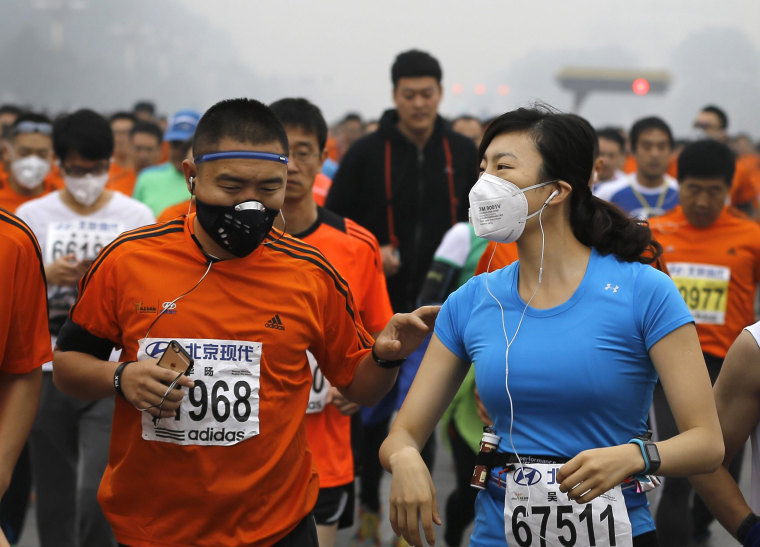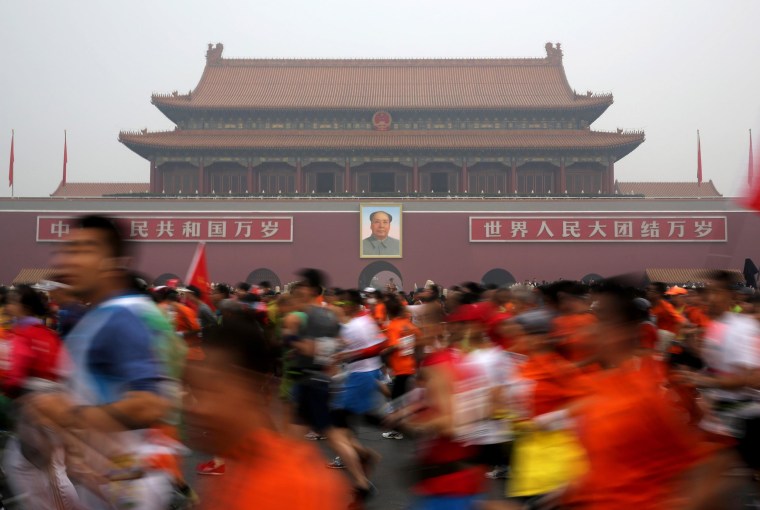Despite heavy pollution blanketing Beijing on Sunday, an international marathon went ahead, with face masks and sponges among the equipment used by competitors to battle the smog.
The 34th Beijing International Marathon began at Tiananmen Square with many of the tens of thousands of participants wearing face masks. The 26-mile course ended at the Chinese capital's Olympic Park, on a day when buildings across the city disappeared into the gray-tinged mist.
"Actually, on a normal day, nobody would run in such conditions," said participant Liu Zhenyu, a computer engineer. "But the event is happening today, so what can we do?"

About 30,000 people were expected to take part in the marathon and the half-marathon. The organizing committee made 140,000 sponges available at supply stations along the marathon route so runners could "clean their skin that is exposed to the air," the Beijing News reported.
The air Sunday was deemed severely polluted, according to the real-time monitoring of Beijing's environmental center. It was the most serious level on China's air quality index, and came with a warning for children, the elderly and the sick to stay indoors, and for everyone to avoid outdoor activities.
The U.S. Embassy, which tracks the Beijing air from a monitoring station on its roof and uses a different air quality index, said the air was hazardous. It gave a reading of 344 micrograms per cubic meter of PM2.5 particulate matter. The World Health Organization considers 25 micrograms within a 24-hour period a safe level.
